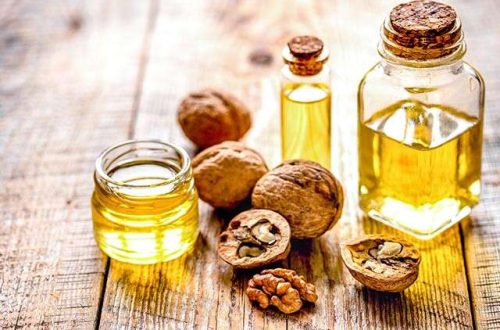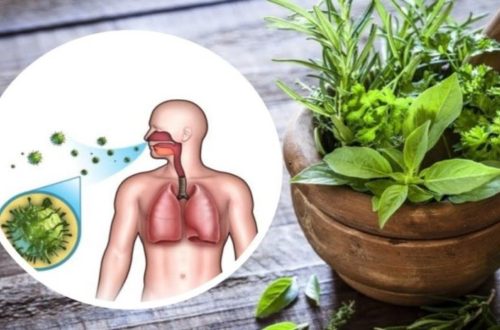Leek (Allium porrum), a close relative of garlic and onion, is often overlooked, even though it has a rich composition of essential nutrients and remarkable therapeutic properties. With a milder aroma than garlic but similar healing power, leeks have been used for centuries in folk medicine to support digestion, detoxify the body, and maintain the health of blood vessels.
Nutritional Table (per 100 g raw leek)
| Component | Quantity |
|---|---|
| Calories | 61 kcal |
| Protein | 1.5 g |
| Carbohydrates | 14 g |
| Dietary Fiber | 1.8 g |
| Vitamin K | 47 g |
| Vitamin C | 12 mg |
| Folate (Vitamin B9) | 64 g |
| Iron | 2.1 mg |
| Manganese | 0.5 mg |
| Antioxidants (kaempferol, allicin) | significant amounts |
Benefits of Leeks
1. Supports Heart Health
Leeks contain antioxidants such as kaempferol, which protect blood vessel cells from oxidative stress. Studies show that these substances reduce inflammation and contribute to lowering LDL cholesterol levels, improving blood flow. Regular consumption of leeks promotes vessel dilation and keeps blood pressure within optimal limits. Allicin, the active compound specific to the Allium family, reduces the risk of blood clot formation and supports arterial elasticity.
2. Detoxifies the Liver and Aids Digestion
Leeks are rich in prebiotic fiber, especially inulin, which nourishes beneficial gut bacteria. This effect stimulates the natural liver detoxification process and improves fat digestion. Additionally, leeks contain organic sulfurs with liver-protective effects, reducing the liver’s burden with toxins. Consumed raw or lightly cooked, leeks stimulate bile secretion and prevent abdominal discomfort after heavy meals.
3. Protects the Brain and Nervous System
Due to their folate (vitamin B9) content, leeks play a key role in neurotransmitter formation and support cognitive function. Antioxidants can reduce brain inflammation and slow down neuronal aging. Studies suggest that regular consumption of Allium family vegetables is associated with a lower risk of cognitive decline and neurodegenerative diseases.
4. Supports Immunity and Reduces Inflammation
Vitamin C, flavonoids, and allicin make leeks an important ally for the immune system. Allicin has natural antibacterial and antiviral effects, helping the body fight seasonal infections. At the same time, kaempferol reduces chronic inflammatory processes, playing a protective role against autoimmune and inflammatory diseases.
5. Contributes to Skin Health
Leeks contain antioxidants that neutralize free radicals and support collagen synthesis, maintaining skin elasticity. The vitamin C in their composition promotes cellular regeneration and accelerates wound healing. Additionally, sulfur compounds can help regulate sebum secretion, being useful in cases of mild acne.
6. Aids Weight Control and Supports Metabolism
Being low in calories and high in fiber, leeks provide a feeling of fullness without hindering digestion. Inulin, a prebiotic fiber, regulates blood sugar levels and supports a balanced metabolism. By stimulating beneficial gut flora, leeks also aid in better absorption of essential nutrients.
Research and Studies
- A study published in Journal of Agricultural and Food Chemistry (2018) confirmed that leeks contain notable amounts of kaempferol, a flavonoid with anti-inflammatory and cardioprotective effects. Researchers observed that individuals who frequently consume Allium family vegetables have a significantly lower risk of cardiovascular diseases.
- A study conducted at the University of Reading (UK) demonstrated the prebiotic effects of inulin from leeks. After 4 weeks of regular consumption, there was a significant increase in beneficial Bifidobacterium bacteria, correlated with improved digestion and mineral absorption.
- Research published in Nutrients Journal (2020) showed that leek extracts reduce oxidative stress levels in liver cells and stimulate liver regeneration after exposure to toxins.
- Another study published in Phytotherapy Research (2021) analyzed the effect of allicin on blood pressure, highlighting an average decrease of 8 mmHg in hypertensive patients who consumed leek extract daily for 12 weeks.
Preparation and Consumption
Leeks can be consumed raw in salads or cooked in soups, purees, tarts, or vegetable dishes. To maximize the effects of sulfur compounds, it is recommended to chop the leeks and let them sit for 5-10 minutes before cooking to activate allicin.
In salads, combine leeks with grated carrots, parsley, and a drizzle of olive oil.
In soup form, boil 1 medium leek with potatoes and a bit of celery, then puree for a light and nutritious dish.
Contraindications
Leeks are safe for most people; however, they can cause abdominal discomfort in cases of excessive consumption due to their fermentable fiber content (FODMAP). Individuals with irritable bowel syndrome should consume them in small quantities. Additionally, those undergoing anticoagulant treatments should consult their doctor, as leeks contain vitamin K, which can influence blood clotting.





